All 32 NFL Teams’ Most Regrettable Draft Move Since 2000
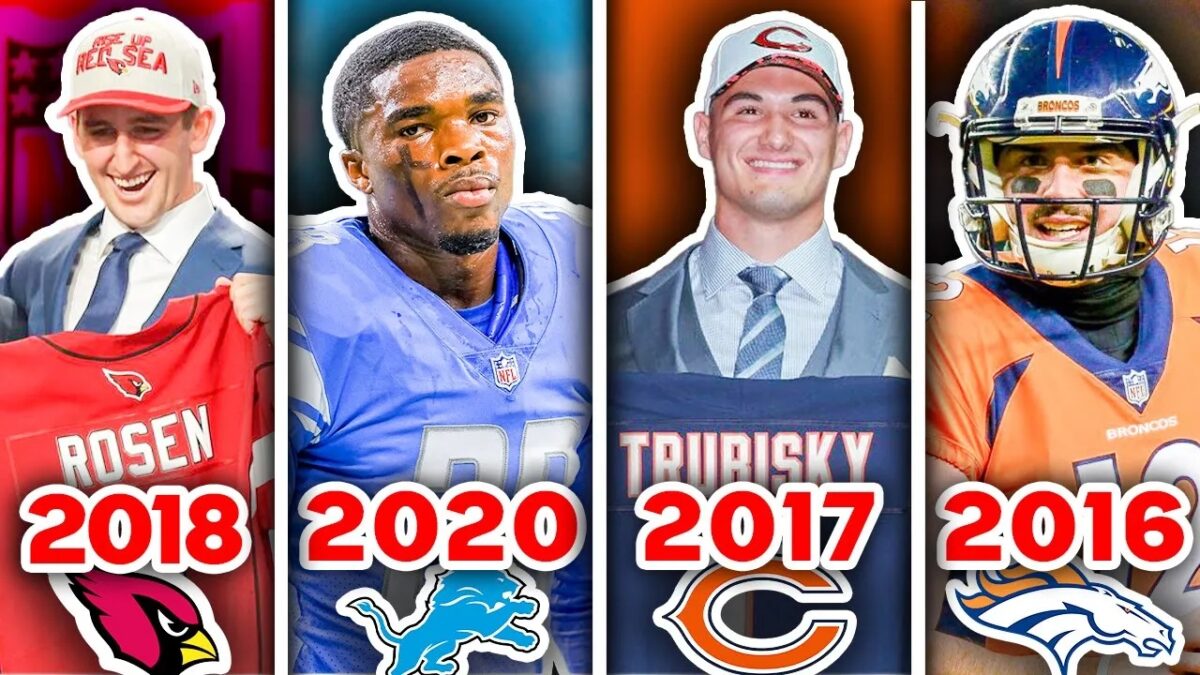
Every NFL team makes mistakes in the draft. It’s part of the business… That being said, every franchise does have that one humungous draft-day mistake that stands out above the rest.
Here is a dive into every NFL team’s most regrettable draft move since the start of the century.
Which NFL draft mistakes did each team make since 2000?
Arizona Cardinals: Trading Up For Josh Rosen (2018)
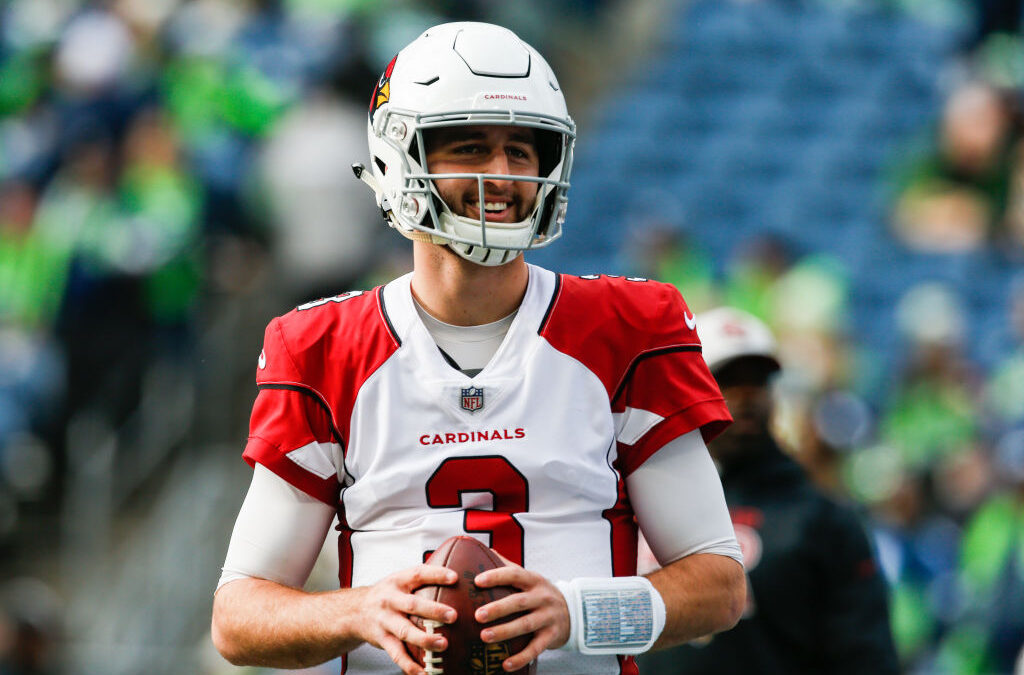
Hoping to secure a new franchise QB, the Cardinals traded up with the Oakland Raiders to get UCLA quarterback Josh Rosen 10th overall in exchange for the No. 15, No. 179 and No. 152 selections.
It took Arizona just one year to give up on Rosen, who had 11 touchdowns and 14 picks in his rookie year. They then selected Kyler Murray first overall in the 2019 NFL draft and wound up dealing Rosen to the Miami Dolphins.
The Cardinals passed on future MVP Lamar Jackson, and the next three picks after Rosen were future Pro Bowlers in Minkah Fitzpatrick, Vita Vea and Daron Payne. Yikes!
Atlanta Falcons: Moving Up For Jamaal Anderson (2007)
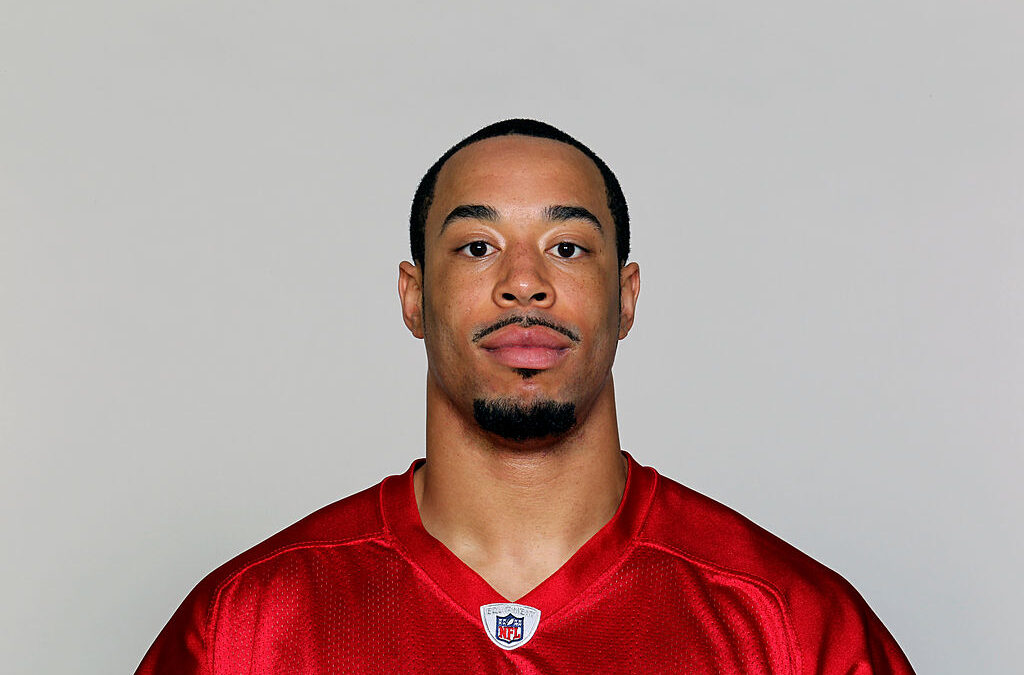
The Falcons traded up two spots with the Houston Texans to select Arkansas defensive end Jamaal Anderson eighth overall in 2008. Atlanta got a whopping 4.5 sacks over four seasons from Anderson.
They passed on future superstars and subsequent first-round picks like Patrick Willis, Marshawn Lynch, Darrelle Revis, and Joe Staley. Yikes!
Baltimore Ravens: Marquise Brown (2019)
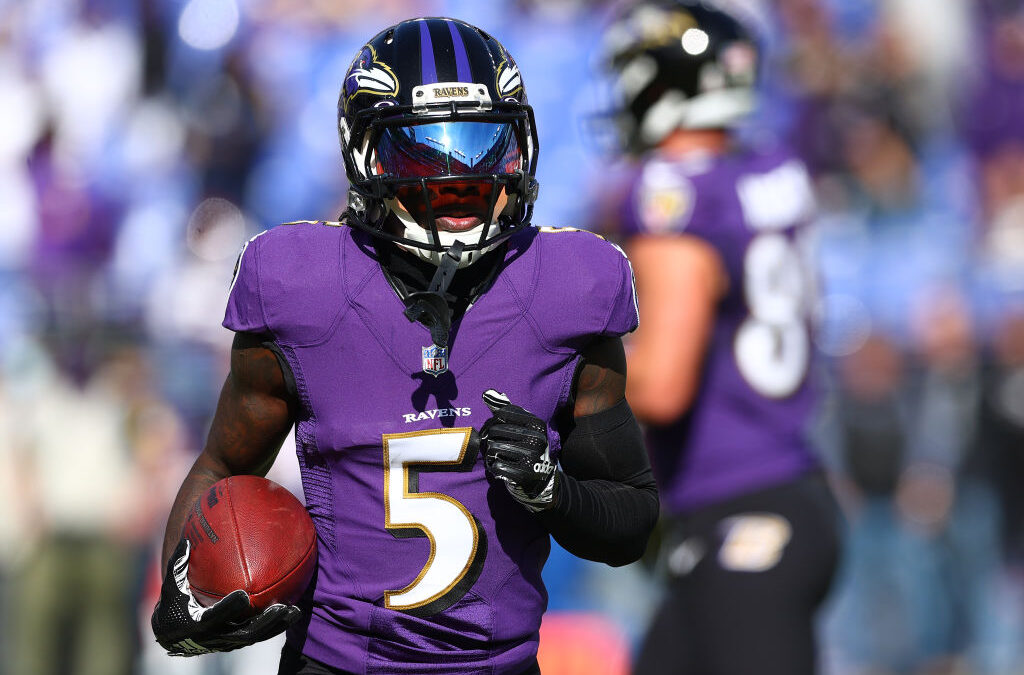
We’ve long stated that no NFL team drafts better than the Ravens, but they swung and missed on Marquise ‘Hollywood’ Brown with the No. 25 pick in 2019.
After inconsistent rookie and sophomore years, Brown crossed 1,000-yards receiving in 2021 — only to be traded to the Cardinals at the 2022 draft. The Ravens took Brown over a plethora of future star wideouts, including Deebo Samuel, DK Metcalf, Terry McLaurin and AJ Brown.
Buffalo Bills: Mike Williams (2002)
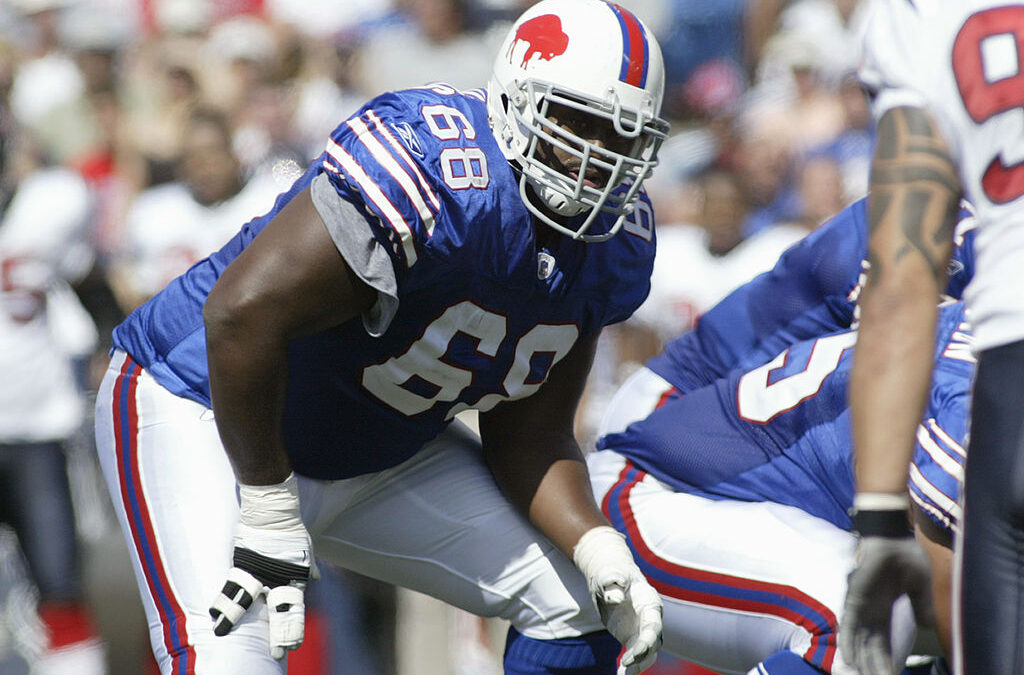
The Bills were awful at drafting long before Brandon Beane joined the organization, but no draft mistake stands out more than the Mike Williams pick at No. 4 overall in 2002.
Buffalo took the Texas offensive lineman early, hoping he’d be a long-term anchor on their o-line. He lasted four seasons in Buffalo but never once got close to reaching expectations.
Carolina Panthers: Trading up For Jeff Otah (2008)
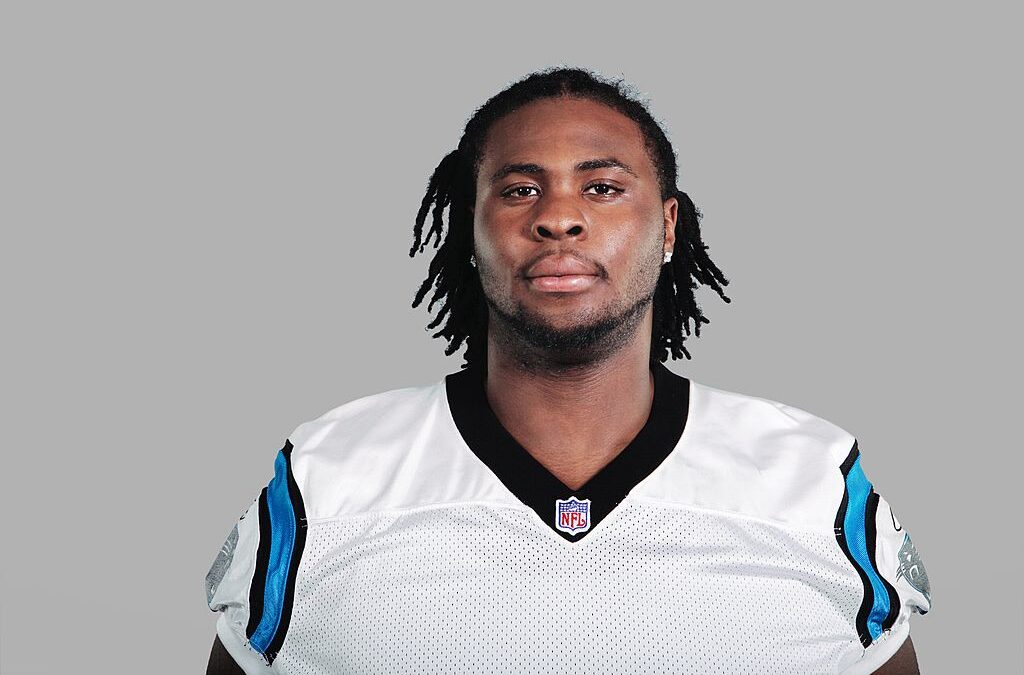
There were plenty of disappointments to come out of the first round of the 2008 NFL draft, so the Panthers at least don’t have to feel alone in this regard.
At the ‘08 draft, the Panthers gave up their second and fourth-round picks plus a 2009 first to select Pittsburgh offensive lineman Jeff Otah. He lasted just four seasons in the NFL, and like Mike Williams in Buffalo, never grew into a steady lineman.
The Eagles wound up trading that 2009 first-rounder to Buffalo, and they got future Hall of Fame offensive tackle Jason Peters as part of the trade. BIG OUCH for the Panthers!!!
Also Read: Ranking All 32 Teams Based On How Desperately They Need To Have A Great 2024 NFL Draft
Chicago Bears: Mitch Trubisky Over Patrick Mahomes (2017)
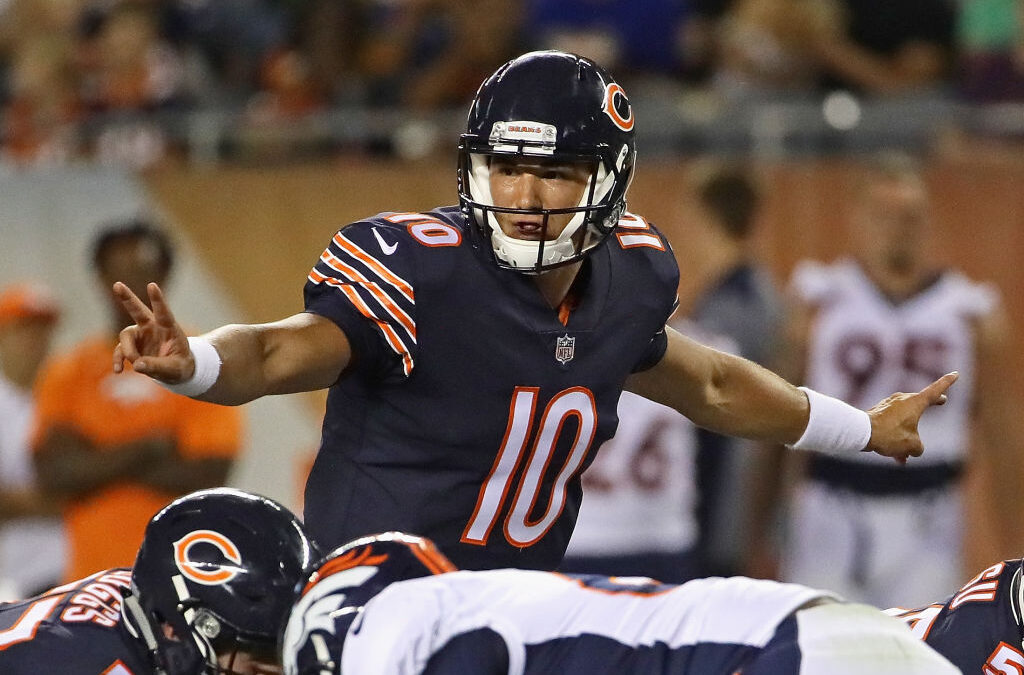
Do we really need to explain this? The Bears traded up one spot with the San Francisco 49ers to take Trubisky. They infamously passed on Patrick Mahomes, who is only the best player in the NFL right now.
Trubisky lasted four mediocre seasons in Chicago and never came close to being even an above-average player.
Cincinnati Bengals: John Ross (2017)
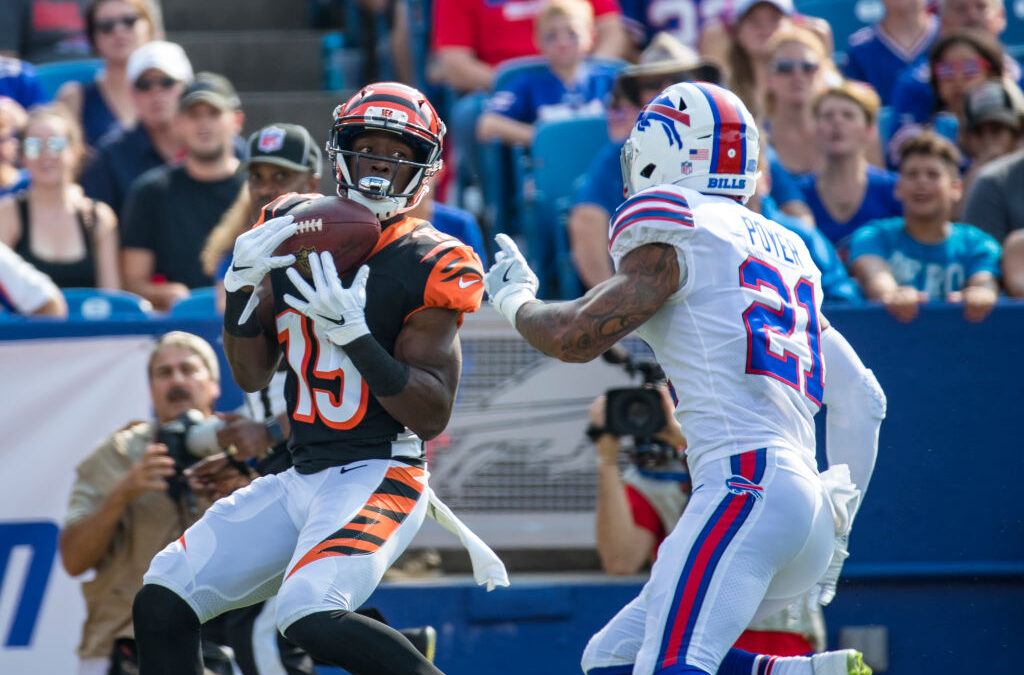
The Washington wideout turned heads at the NFL Combine when he ran a 4.22-second 40, a record that still stands today.
At the 2017 NFL draft, the Bengals took Ross ninth overall – hoping he’d form a prolific tandem alongside Andy Dalton. But injuries limited Ross to just 27 games as a Bengal over four years, and he hauled in just 51 receptions for 733 yards and ten touchdowns in that span.
The next four picks after Ross? Patrick Mahomes, Marshon Lattimore, Deshaun Watson and Haason Reddick. On top of that, Marlon Humphrey, Jonathan Allen, Tre’Davious White, TJ Watt and Ryan Ramcyk were also taken later on in round one.
Cleveland Browns: Courtney Brown (2000)
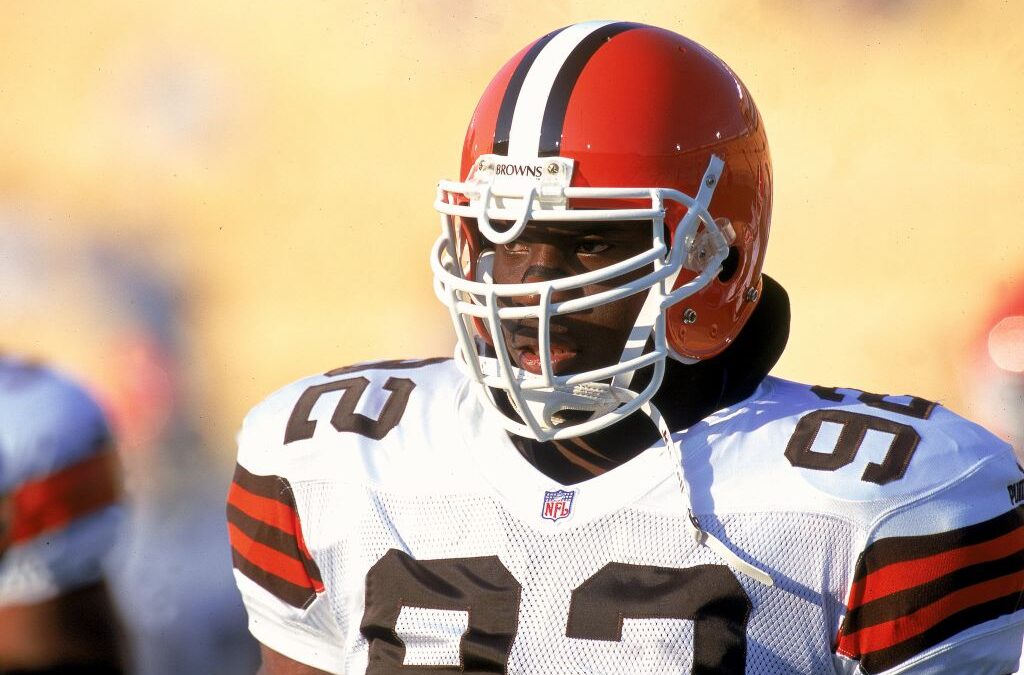
No team has wasted more first-round picks in this century than the Browns. They sure missed on Tim Couch first overall in 1999, but he’s not eligible for this list — so we’ll settle on the guy Cleveland took first overall in 2000.
Brown was a highly-touted linebacker out of Penn State, winning Big Ten Defensive Lineman of the Year and Big Ten Defensive Player of the Year. So what did he bring to Cleveland?
How about a whopping 17 sacks and six forced fumbles over six seasons? Seven of the next eight picks went on to have productive careers, including Hall of Fame linebacker Brian Urlacher, running backs Jamal Lewis and Thomas Jones, and linebacker LaVar Arrington.
Dallas Cowboys: Moving Up For Morris Claiborne (2012)
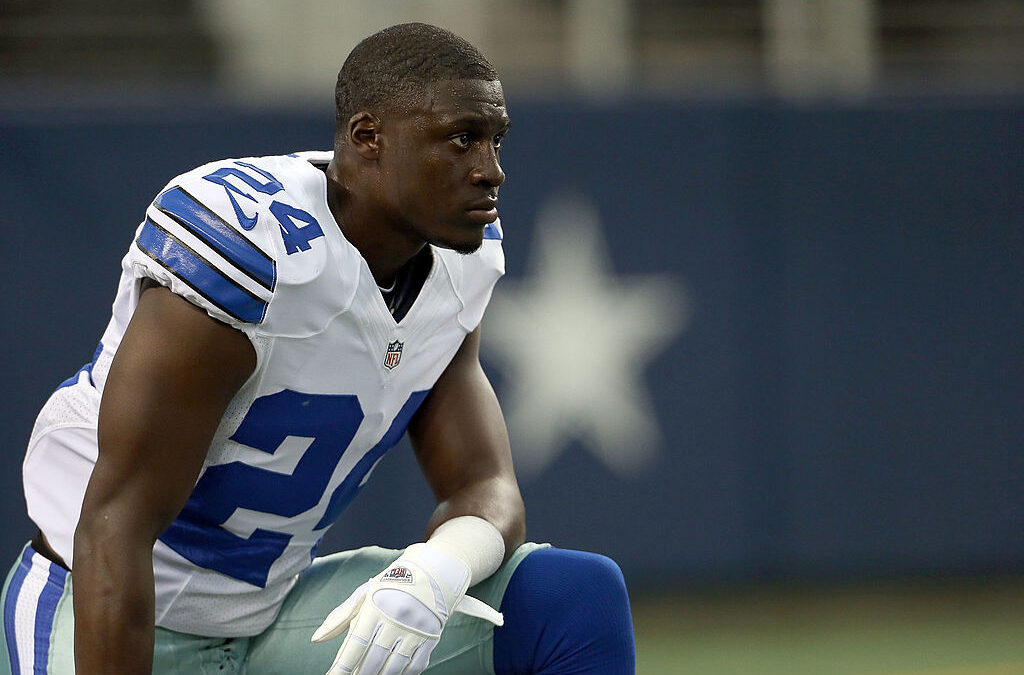
Love him or hate him, Jerry Jones usually makes good use of his first-round picks. Claiborne, however, was an exception.
At the 2012 NFL draft, the Cowboys traded the No. 14 and No. 45 picks to the St. Louis Rams in order to move up for the LSU corner — whom they took sixth overall.
Claiborne spent five years in Dallas but never really came close to reaching stardom. Other first-rounders that Dallas passed on include Luke Kuechly, Chandler Jones, Harrison Smith, Stephon Gilmore, and Fletcher Cox.
Denver Broncos: Paxton Lynch (2016)
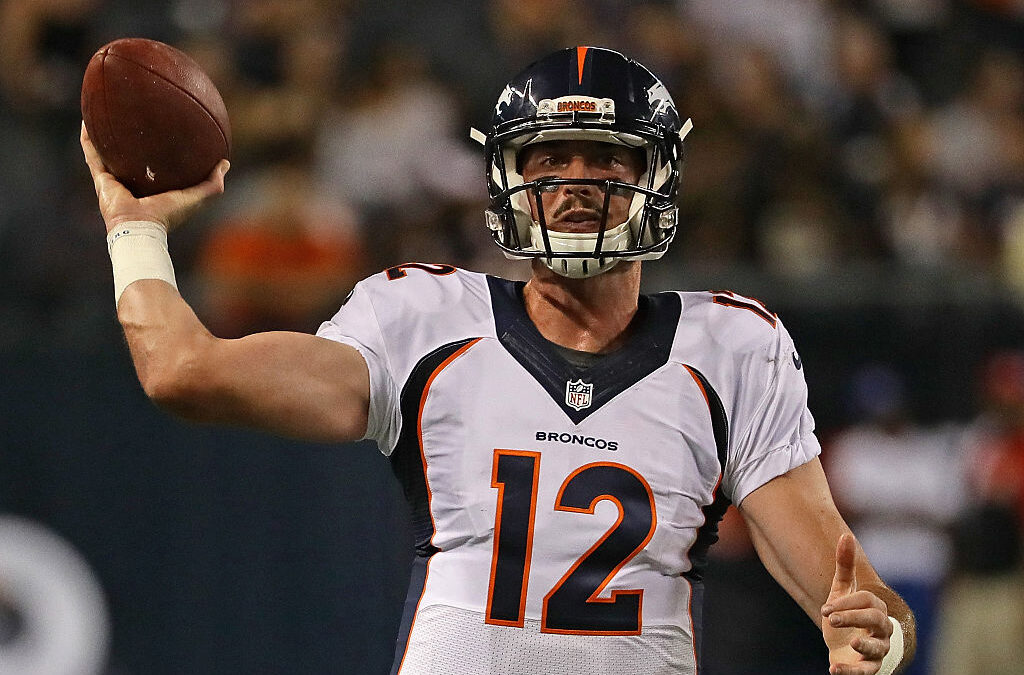
The Broncos lost Peyton Manning to retirement and planned successor Brock Osweiler went to Houston in free agency. A desperate John Elway traded the No. 31 and No. 94 picks to the Seattle Seahawks for the No. 26 selection so that he could take Memphis QB Paxton Lynch.
Elway was known for loving his tall QBs. The 6-foot-7, 244-pound Lynch had the size and physical tools but just never put it together. Denver only needed to see four starts from Lynch over four years before deciding to give up on him.
Detroit Lions: Jeff Okudah (2020)
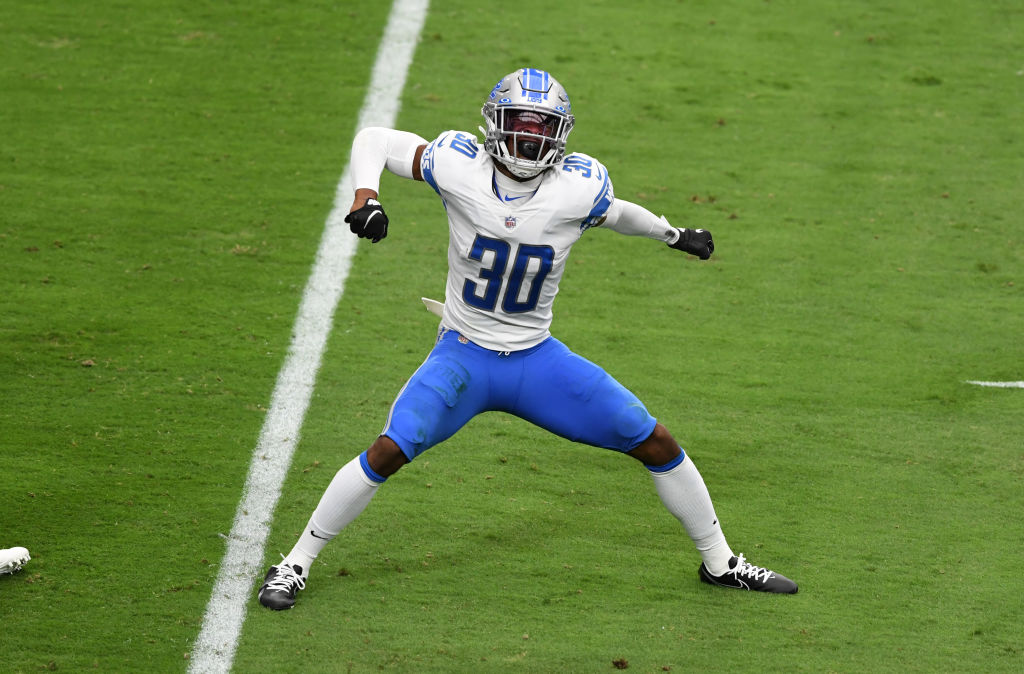
The Lions traded Pro Bowler and fan favorite Darius Slay to the Eagles, then tried replacing him by using the No. 3 pick on Ohio State’s Jeff Okudah.
Injuries limited Okudah to 10 games over his first two seasons. He finally stayed healthy and pieced together a solid year in 2022, but the Lions surprisingly gave up and traded him to the Atlanta Falcons for a fifth-round pick.
Green Bay Packers: Jamal Reynolds (2001)
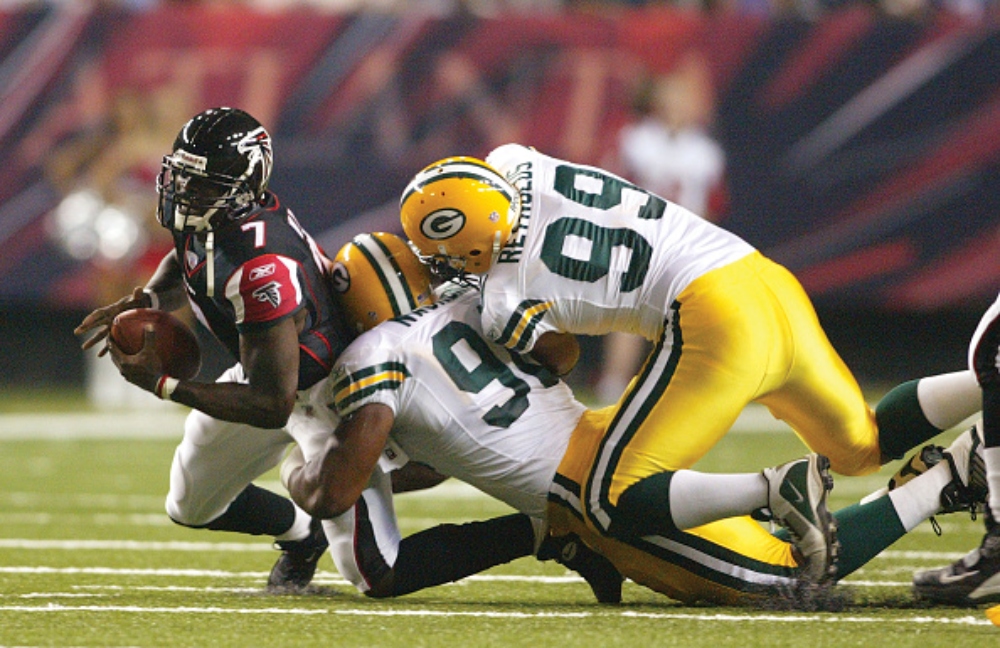
The Packers are usually excellent in the early rounds of the NFL draft, but they’d surely like a do-over on their 2001 first-round selection of Jamal Reynolds.
The Florida State defensive end went 10th overall to the Packers, but they didn’t get a good return on the investment. Reynolds recorded just three sacks in three seasons and was out of the NFL by 2004.
Houston Texans: David Carr (2002)
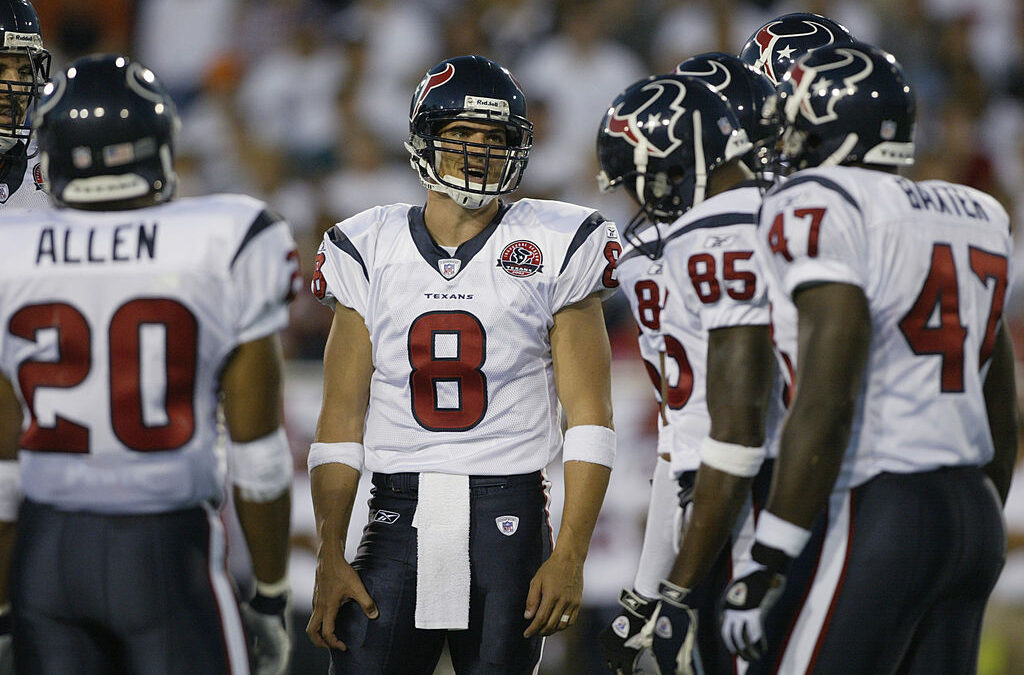
As an expansion franchise, the Texans were awarded the No. 1 selection in the 2002 NFL draft. They used the pick on Fresno State quarterback David Carr, hoping he would serve as the main building block for the franchise.
Carr can’t take all the blame, because the Texans gave him a horrible supporting cast. For example, he was sacked a record 76 times in his rookie season. Carr went 22-and-53 as Houston’s starter over five years and had 59 touchdowns against 65 interceptions.
Indianapolis Colts: Phillip Dorsett (2015)
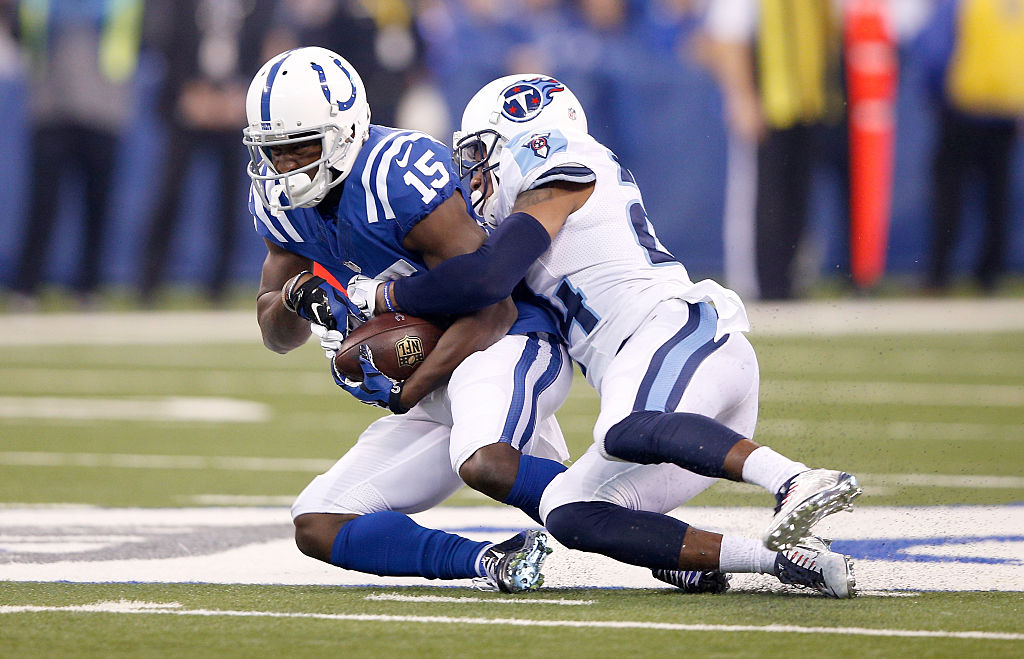
The Colts signed Andre Johnson and Frank Gore to a prolific offense that already had TY Hilton, Donte Moncrief, Coby Fleener and Dwayne Allen. It simply made no sense to draft another receiver when they had so many other pressing needs.
Dorsett had two underwhelming seasons in Indy before getting traded to New England in 2017.
Jacksonville Jaguars: Blaine Gabbert (2011)
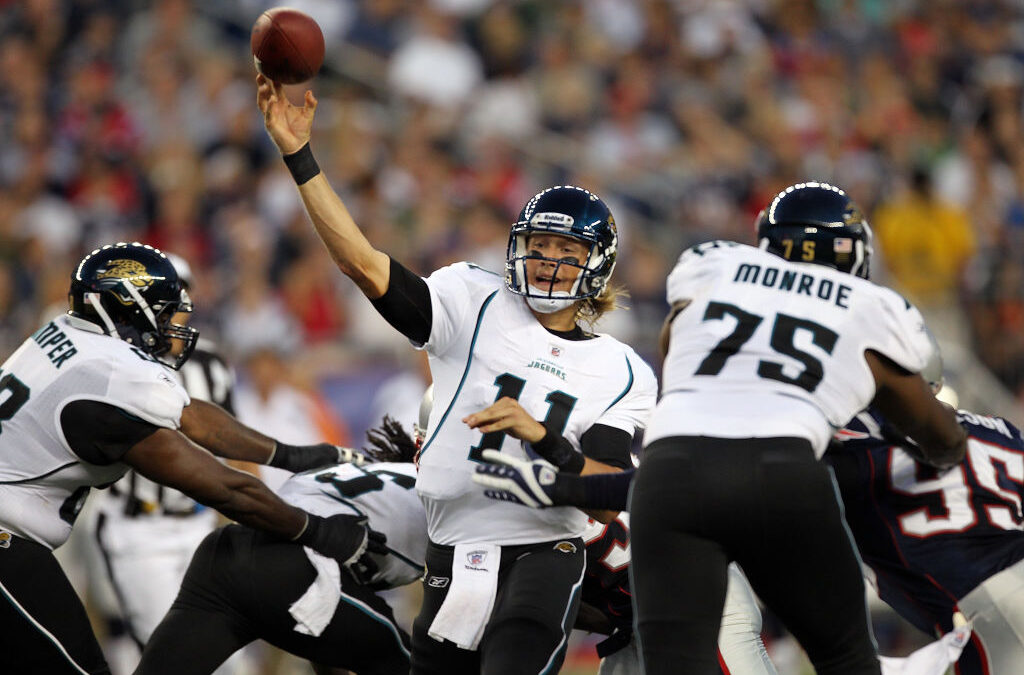
The Jaguars traded up to select Blaine Gabbert 10th overall in 2011. That amounted to five total wins from him over three years.
The next pick? JJ Watt, a three-time Defensive Player of the Year and first balot Hall of Famer. No wonder the Jaguars were a joke for a decade!
Kansas City Chiefs: Glenn Dorsey (2008)
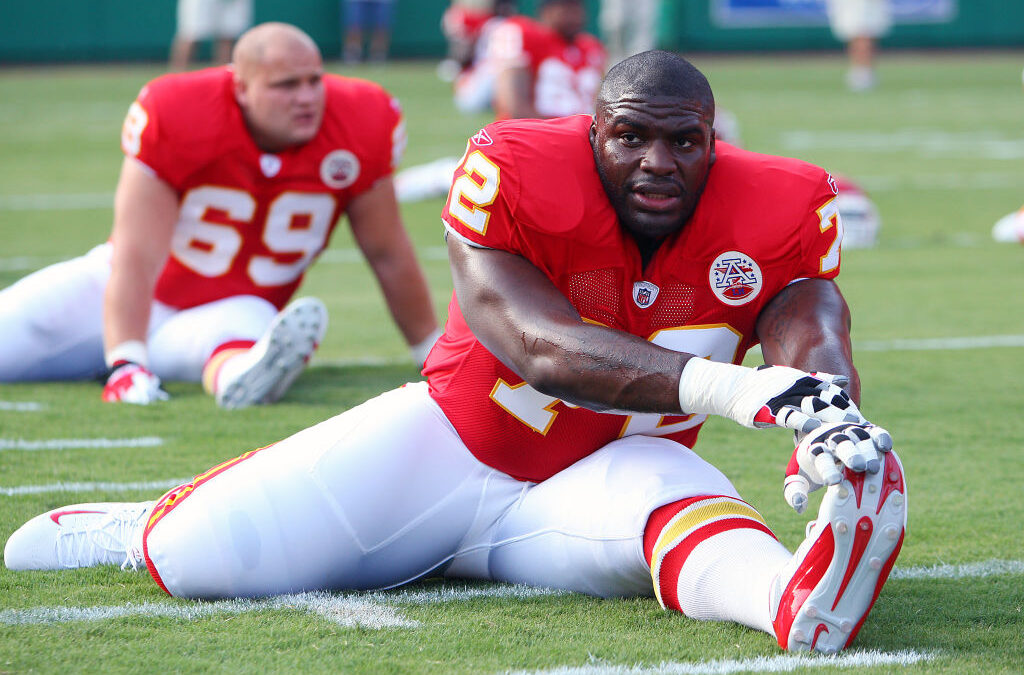
The Jets took Dorsey with the No. 5 selection in the ‘08 NFL draft, and boy was that a total whiff. Dorsey had only four sacks in five seasons with the Chiefs, with two of them coming alone in the 2010 season.
Las Vegas Raiders: JaMarcus Russell (2007)
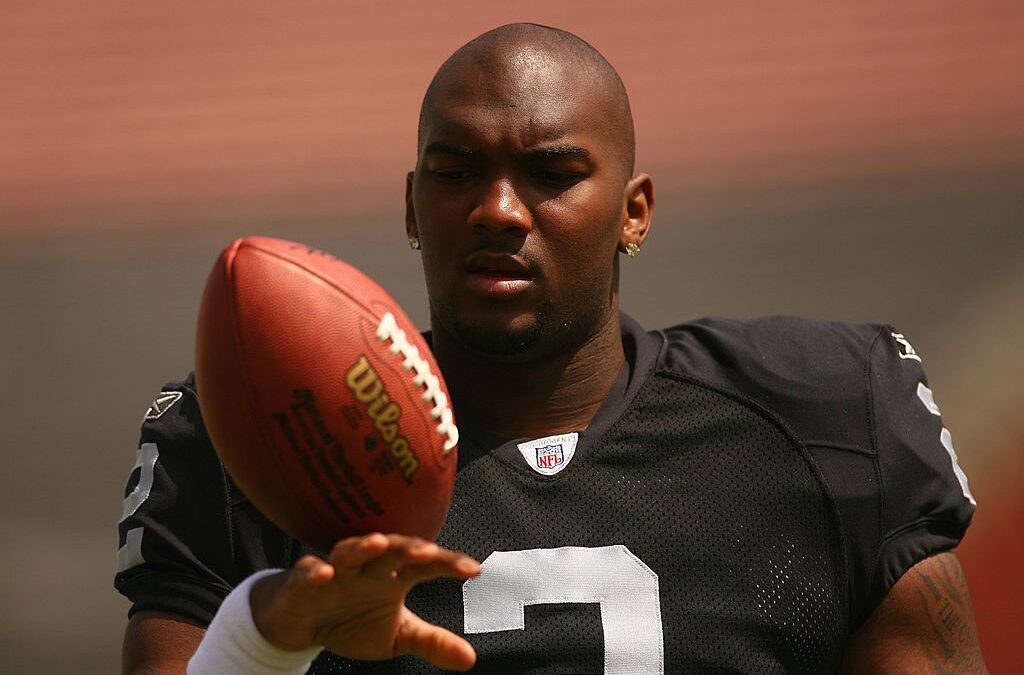
Russell was taken first overall in the star-studded ‘07 NFL draft. We all know what the final result was: a 7-and-18 record over three years, a 52.1 completion percentage and 18 touchdowns against 23 interceptions.
Los Angeles Chargers: Trading Up For Ryan Matthews (2010)
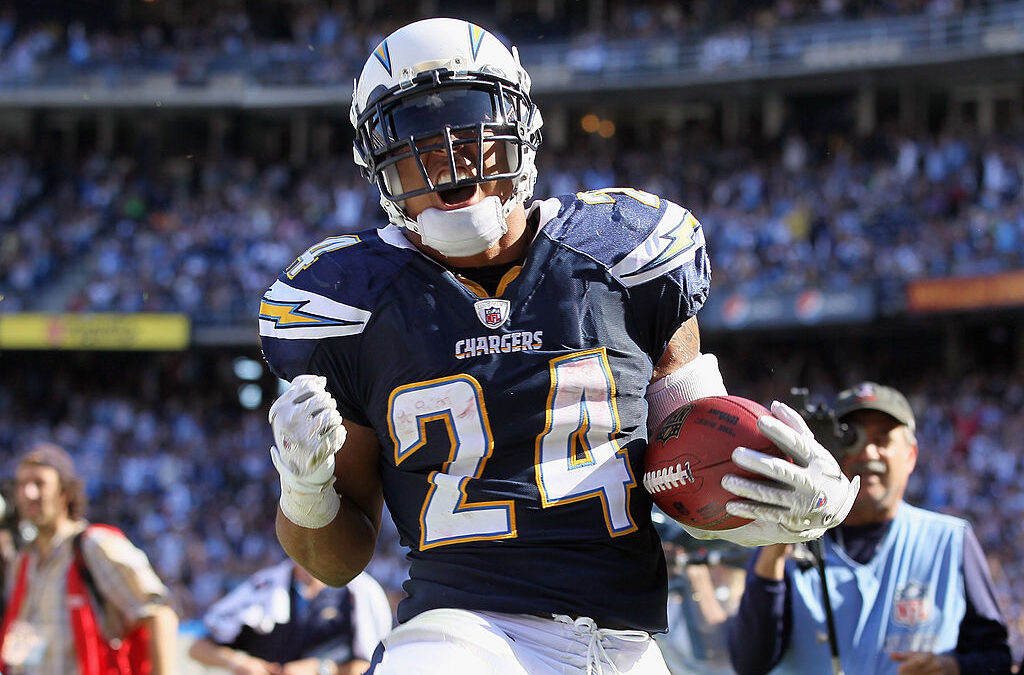
The Chargers swung a trade with Miami to move into the 12th overall spot so they could select Fresno State running back Ryan Matthews 12th overall.
Matthews had two 1,000-yard seasons as a Charger, but he didn’t move the needle on offense that much. The Bolts could have used a more impactful player like Brandon Graham, Earl Thomas, Jason Pierre-Paul, Maurkice Pouncey, Demaryius Thomas or Devin McCourty — all of whom were taken after Matthews in round one.
Los Angeles Rams: Sam Bradford (2010)
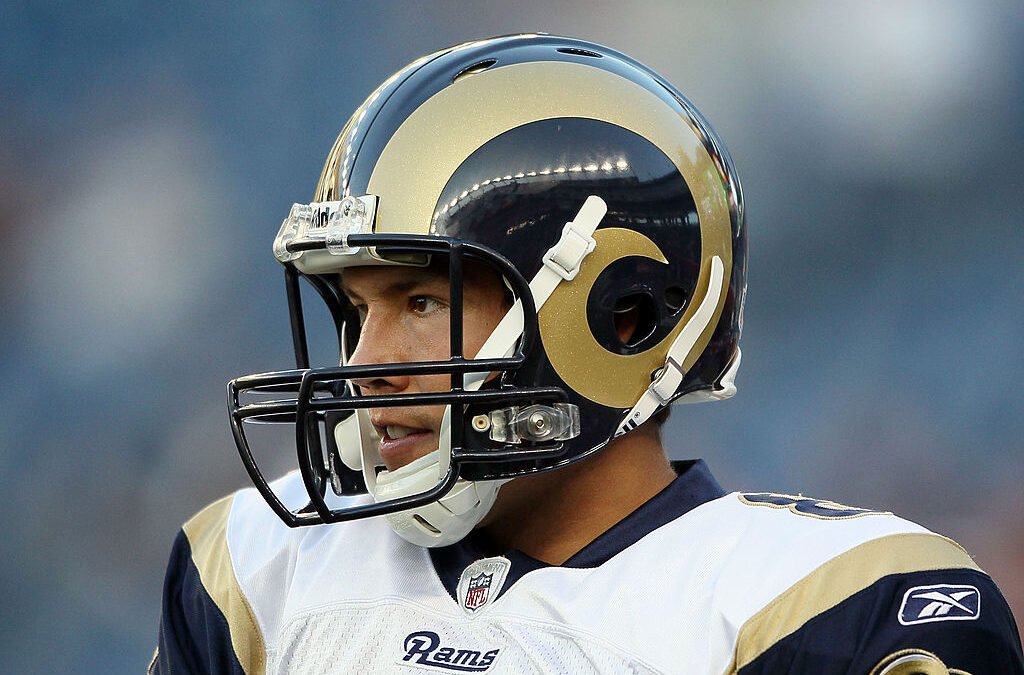
Bradford was taken first overall by the Rams in 2010. He pieced together a solid first season, winning Offensive Rookie of the Year honors. But Jeff Fisher’s awful coaching ways, the lack of a supporting cast and the injury bug all prevented Bradford from ever hitting his prime.
Bradford went 18-30-and-1 in four years with the Rams, throwing 59 touchdowns against 38 interceptions before getting traded to the Eagles in 2015. He was out of the NFL after the 2018 season.
Miami Dolphins: The Move Up For Dion Jordan (2013)
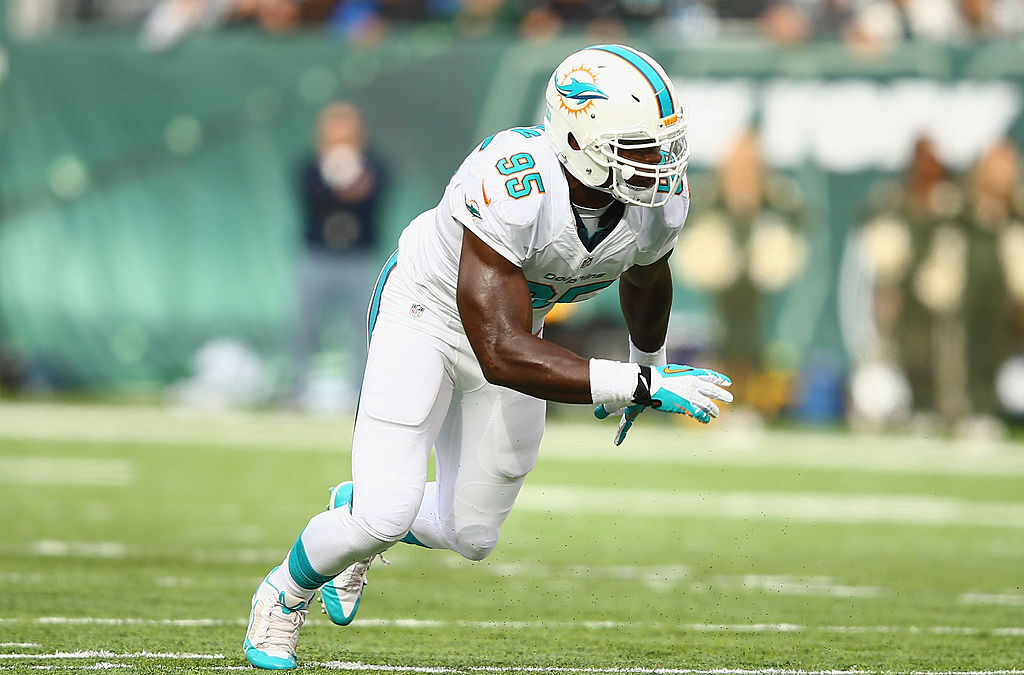
The Dolphins gave up the No. 12 and No. 42 selections to the Raiders so they could get Oregon defensive end Dion Jordan with the No. 3 pick in the 2013 NFL draft.
Jordan had a “meh” rookie year and was limited to 10 games in 2014 because of suspension. He missed all of 2015 for violating the NFL’s substance abuse policy. He also did not play a down in 2016.
Miami’s trade-up for Jordan yielded three sacks in 26 games.
Minnesota Vikings: Troy Williamson (2005)
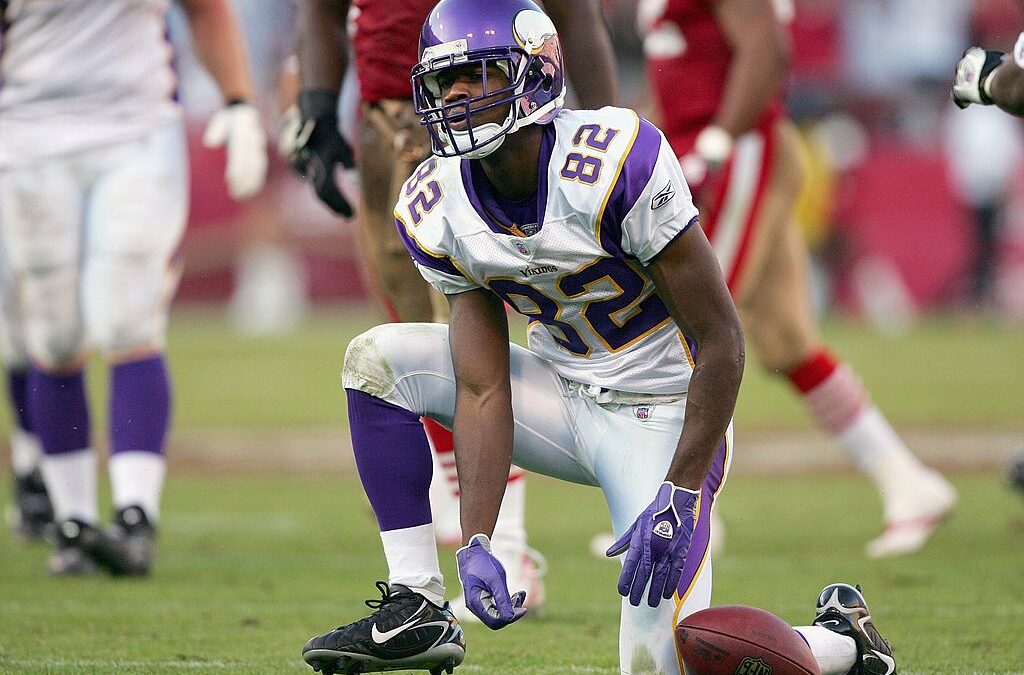
The Vikings got the No. 7 pick from the Raiders in the Randy Moss blockbuster trade. Suffice to say, it didn’t work out for anybody.
Minny tried replacing Moss by picking the South Carolina product. Williamson lasted just three seasons with the Vikings and never topped 455 yards in a season, and he had just three total touchdown receptions.
New England Patriots: N'Keal Harry (2019)
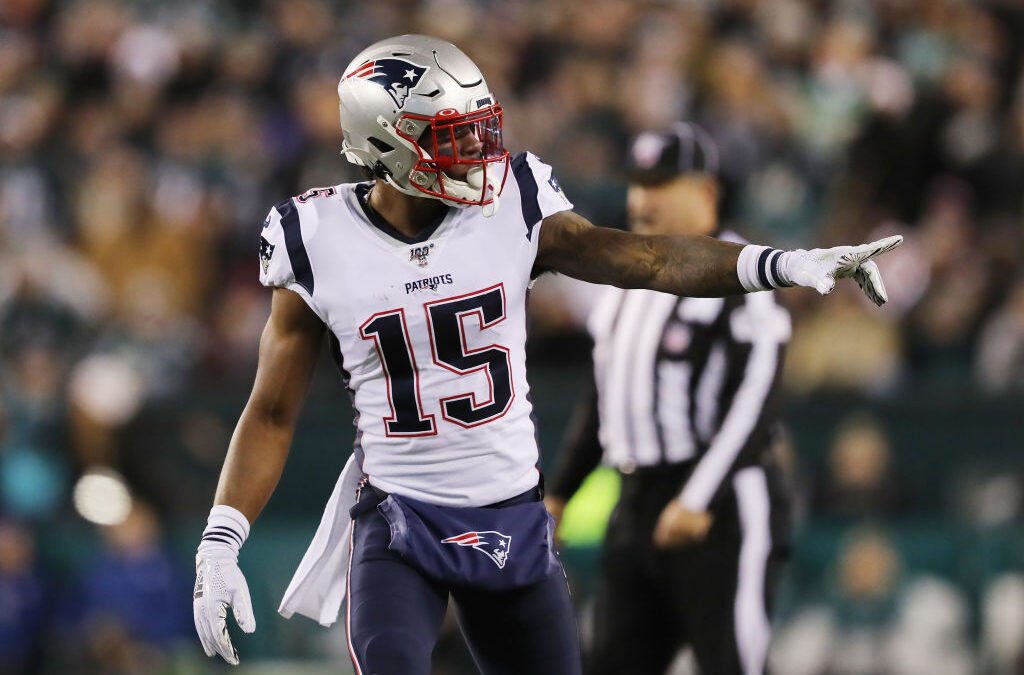
Remember what we said about the Ravens taking Marquise Brown over the many other future star receivers? The Patriots made a similar mistake here by taking Harry 32nd overall in 2019.
Harry’s three seasons in New England amounted to 57 receptions for 598 yards and four touchdowns. Think they might have done better with Samuel, Metcalf, McLaurin or AJ Brown?
New Orleans Saints: Johnathan Sullivan (2003)
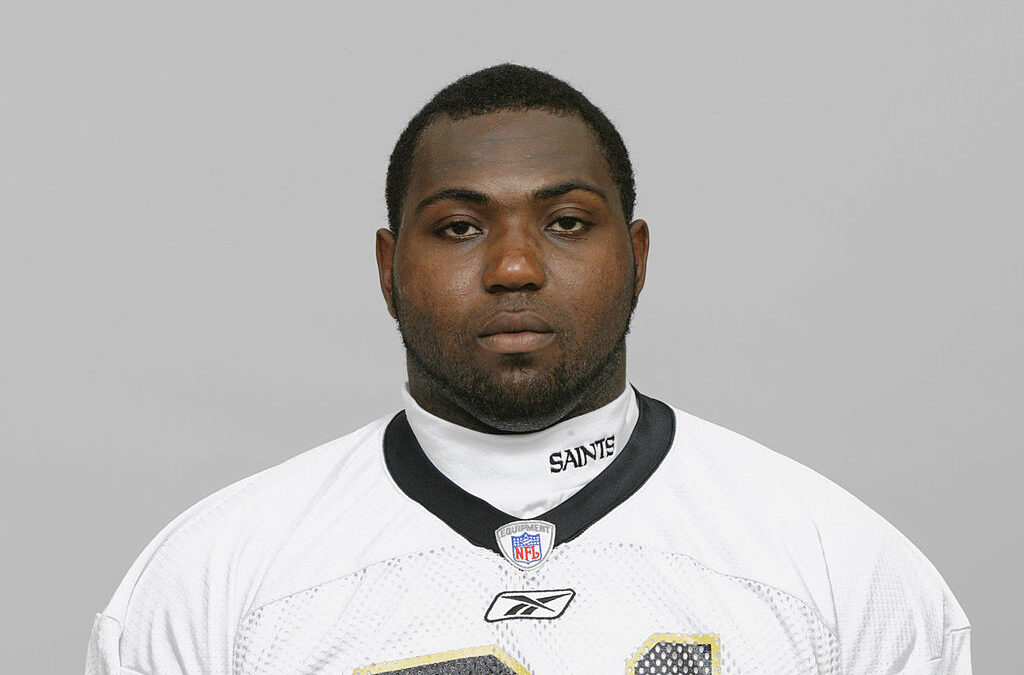
The Saints agreed to a trade with Arizona so they could move into the No. 6 spot in the 2003 NFL draft. With that pick, New Orleans took Georgia defensive tackle Jonathan Sullivan.
Well, the hulking Sullivan never put it together at the NFL level. He had a mere 1.5 sacks and 78 combined tackles over three seasons with the club. He was out of the NFL after the 2005 season.
New York Giants: Ereck Flowers (2015)
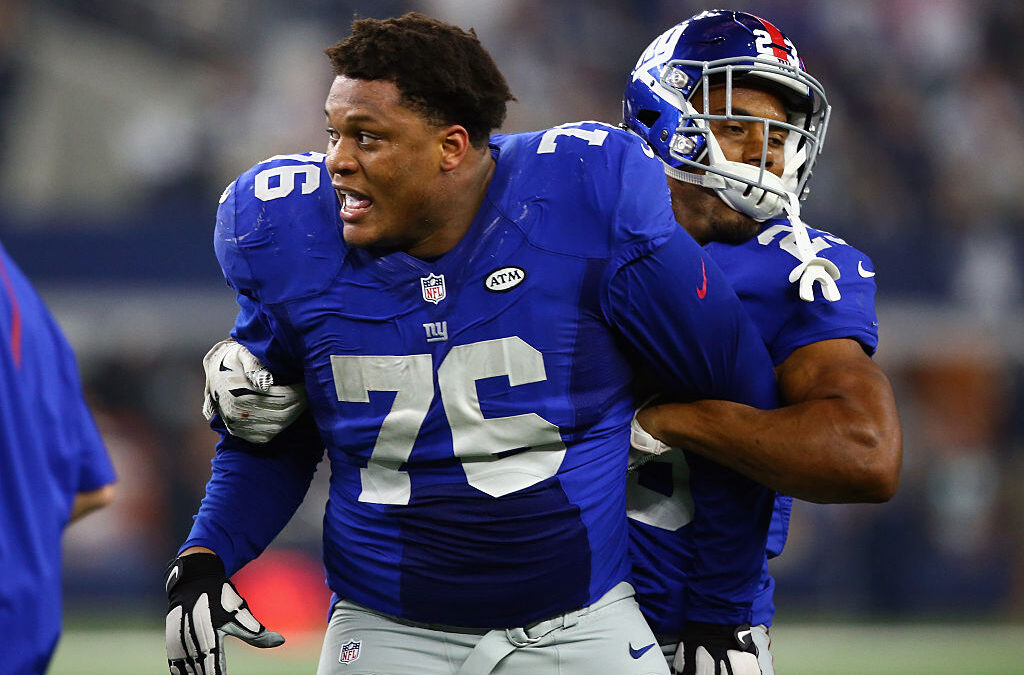
Needing to bolster their o-line, the Giants took offensive lineman Ereck Flowers ninth overall in 2015. Needless to say, it was a disaster from the get-go.
Per Pro Football Focus, Flowers gave up a whopping 18 sacks over his four seasons with the Giants. He was practically a replacement-level player throughout his tenure in the Meadowlands, though he did enjoy some improvement after a move to Washington.
New York Jets: Trading Up For Sam Darnold (2018)
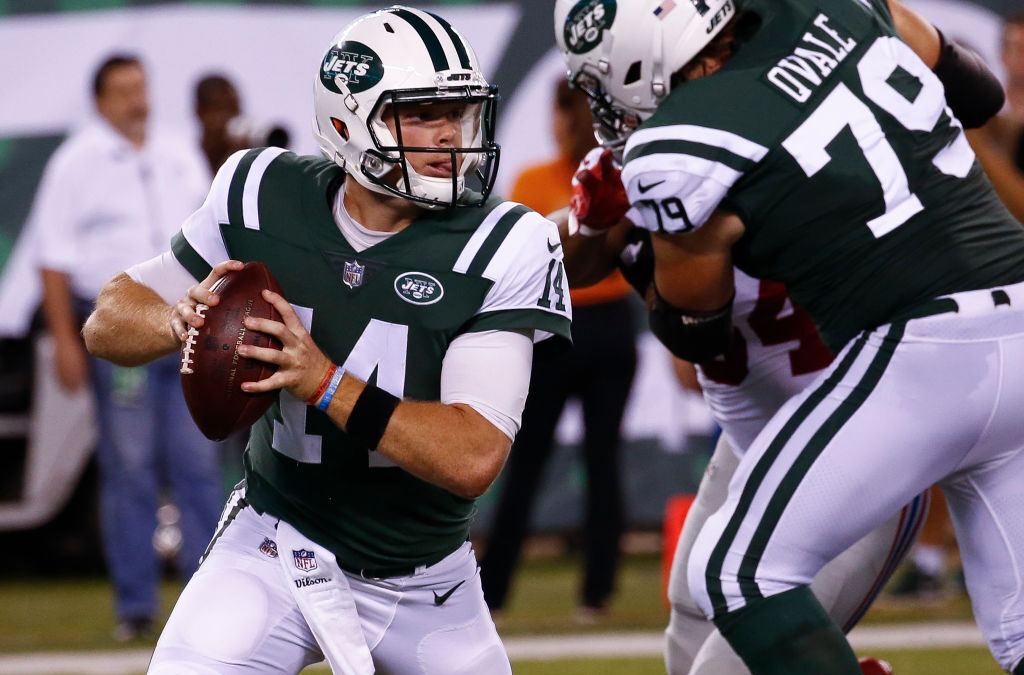
The Jets completed a blockbuster trade with the Colts to move into the No. 3 slot. Instead of taking future MVP Lamar Jackson or Buffalo superstar Josh Allen, they settled on Sam Darnold.
It took the Jets just three years to give up on Darnold before using the No. 2 pick in 2021 on BYU’s Zach Wilson. Add Darnold to the ever-growing Jets’ QB graveyard.
Philadelphia Eagles: Jalen Reagor (2020)
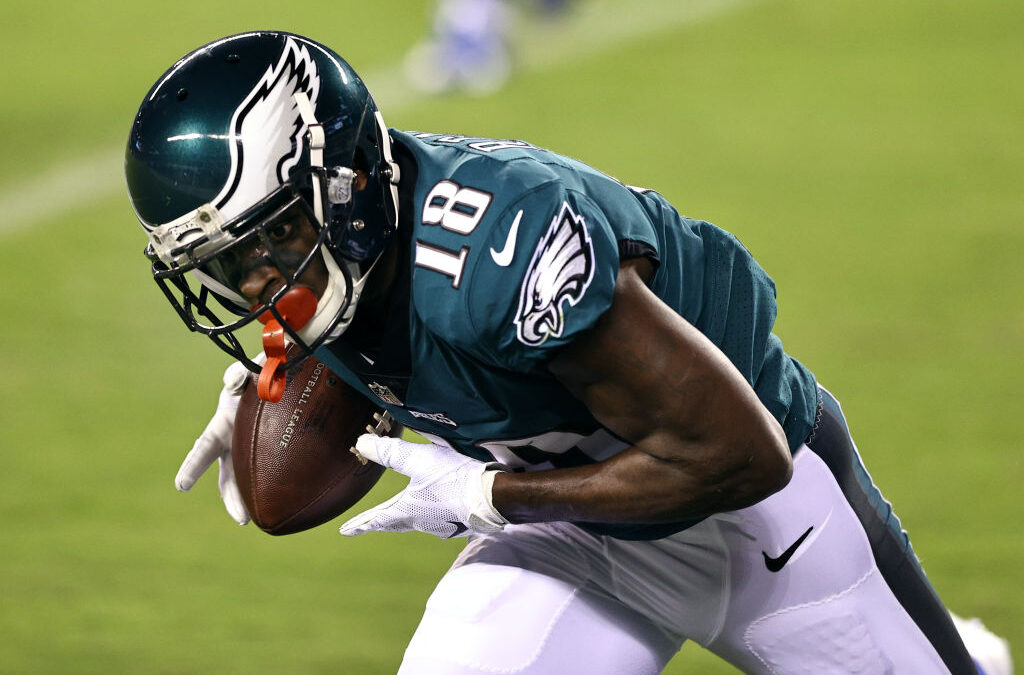
Justin Jefferson is arguably the best wide receiver in the NFL right now. Know who Philly took right before him? Jalen Reagor in the No. 21 spot in the 2020 NFL draft.
Reagor lasted just two seasons in Philly, tallying 64 receptions for 695 yards and three touchdowns.
Pittsburgh Steelers: Jarvis Jones (2013)
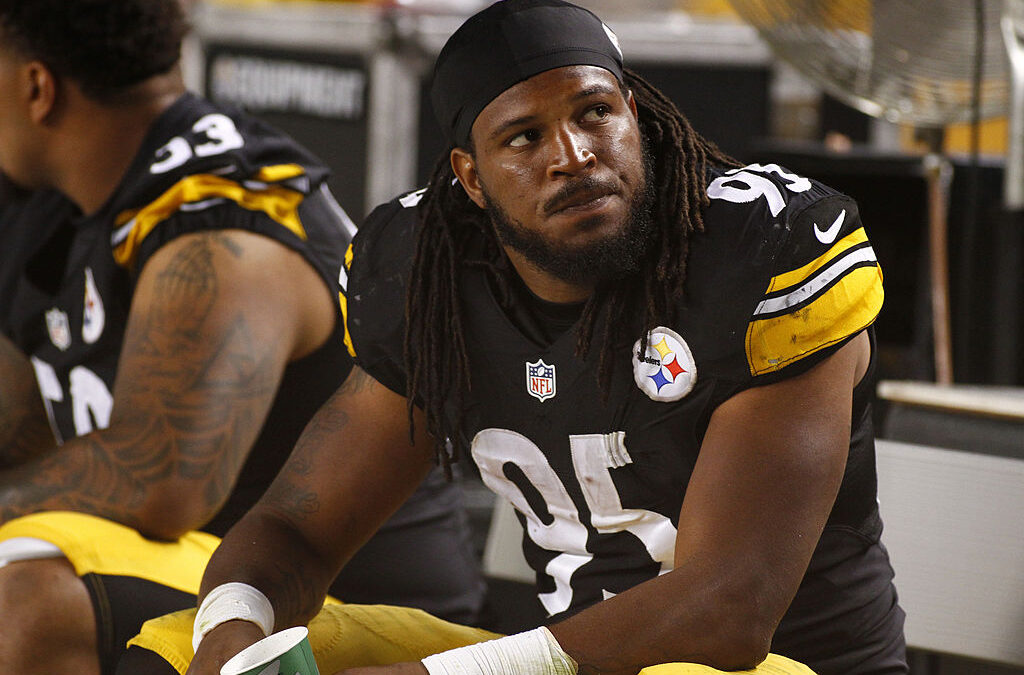
The Steelers took the Georgia linebacker 17th overall in 2013, but even the club’s top-level coaching staff couldn’t get much out of him. Jones had just six sacks, 130 combined tackles and two forced fumbles over four seasons. He was out of the NFL after that.
San Francisco 49ers: Solomon Thomas (2017)
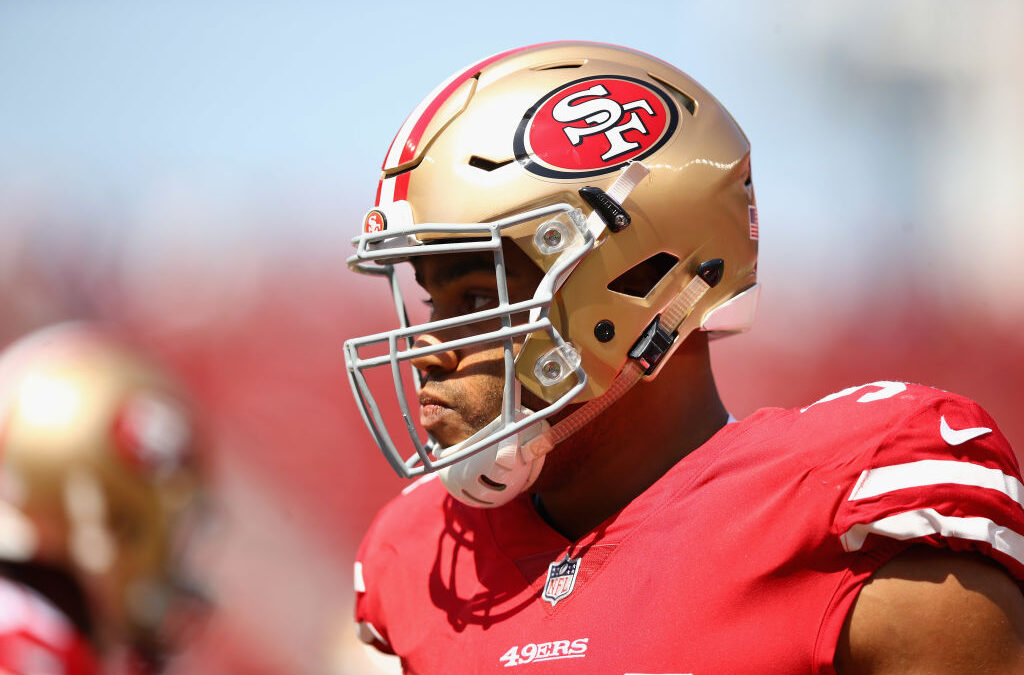
After trading down one spot with Chicago, San Fran used the No. 3 pick in 2017 on Stanford defensive end Solomon Thomas. He had just six sacks in four years with the 49ers, which is awful. Lucky for the Niners, this debacle has been largely overlooked thanks to the Bears’ decision to use that number two pick on Mitch Trubisky.
Seattle Seahawks: Aaron Curry (2009)
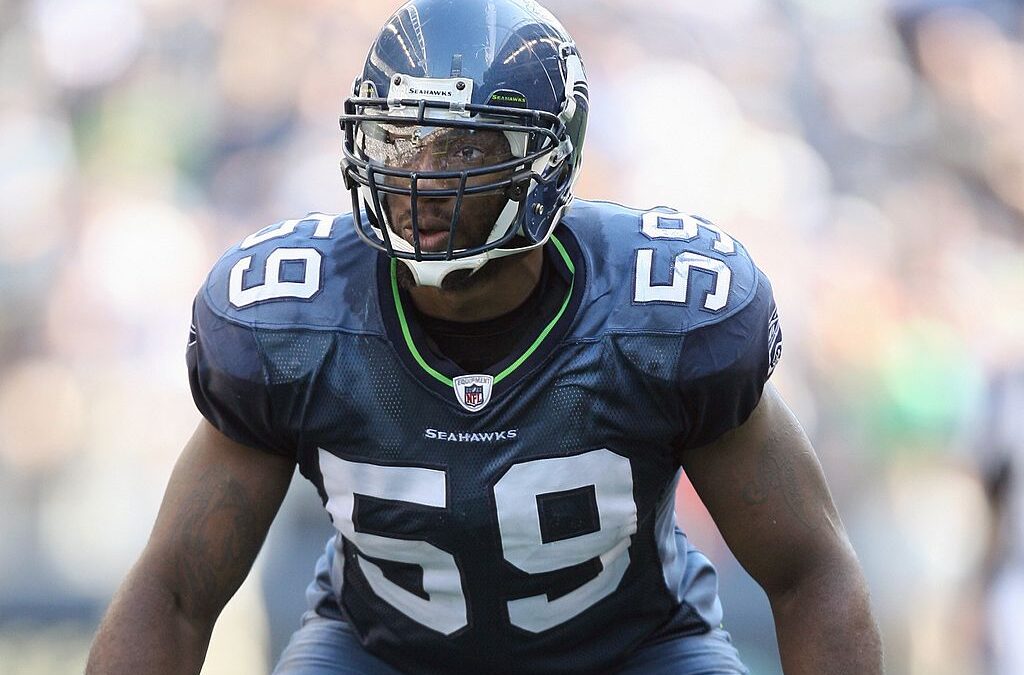
Seattle took the highly-touted Wake Forest linebacker fourth overall in what turned out to be a lackluster 2009 NFL draft class.
Curry was supposed to be the next big thing in his position, but it just never came together for him in the NFL. He had just 5.5 sacks and four forced fumbles over his three years with the ‘Hawks.
Tampa Bay Buccaneers: Mark Barron (2012)
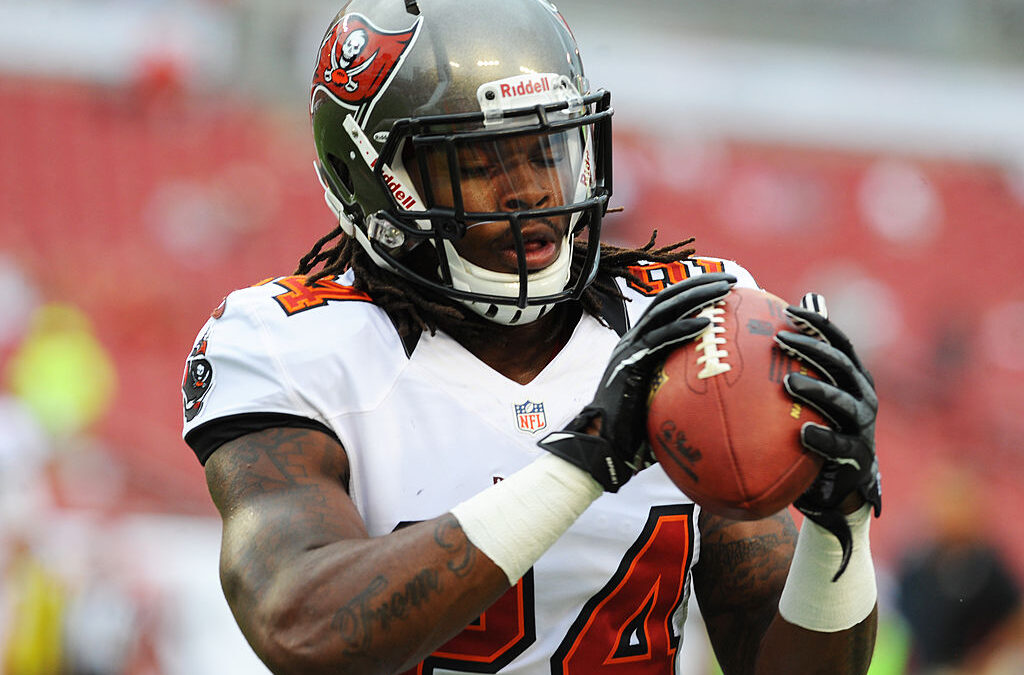
The first round of the 2012 draft featured many stars. Mark Barron, whom the Bucs took in the No. 7 slot, was not one of them.
He lasted just two-and-a-half seasons with the Buccaneers before getting traded to the Rams. The next five guys taken after Barron all became Pro Bowlers: Ryan Tannehill, Luke Kuechly, Stephon Gilmore, Dontari Poe and Fletcher Cox.
Tennessee Titans: Vince Young (2006)
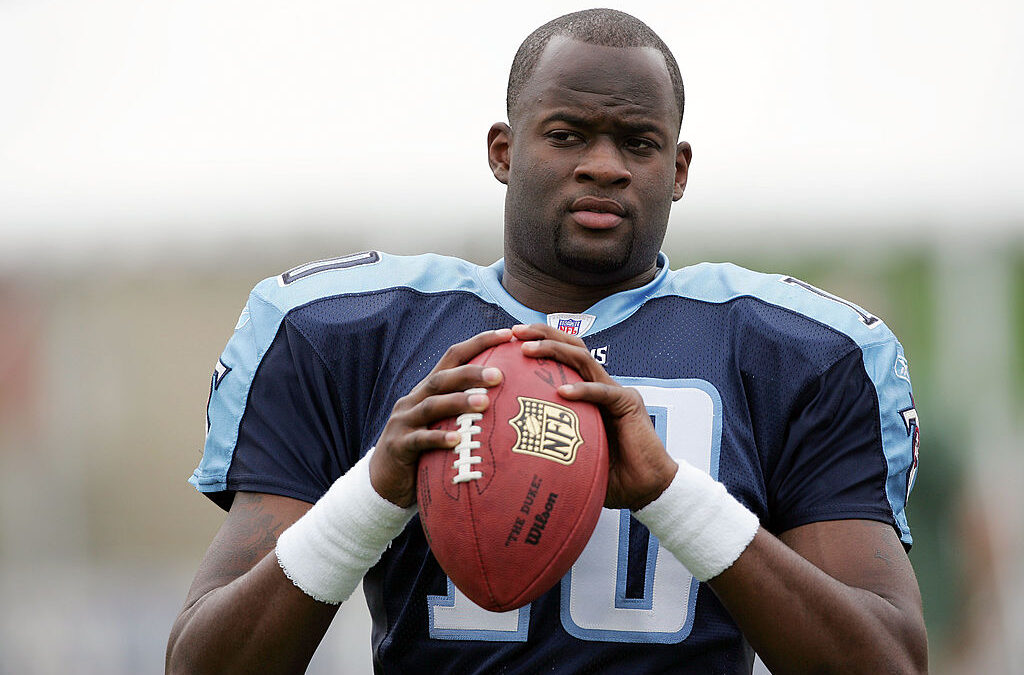
After leading the Texas Longhorns to the ‘05 national championship, Young was taken third overall by Tennessee in 2006. Blame Jeff Fisher or the lack of quality receivers if you wish, but Young just never materialized into the star that many envisioned.
Young did go 30-and-17 as the Titans’ starter, but he had 42 touchdowns against as many picks and only completed 57.9 percent of his passes with the club.
Washington Commanders: Selling The Farm For Robert Griffin III (2012)
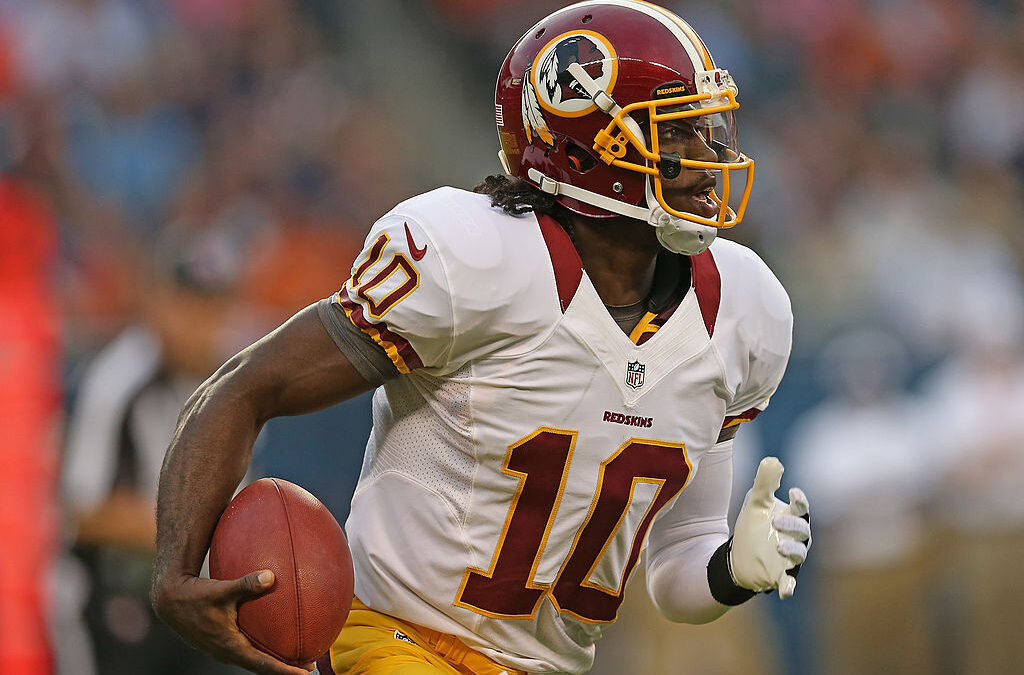
In order to get the 2011 Heisman Trophy winner, Washington sent 2012, 2013 and 2014 first-round picks plus a second-rounder in 2012 to move into the No. 2 spot in the 2012 NFL draft. They selected Robert Griffin III right after the Colts took Andrew Luck first overall.
Griffin had an epic first year, winning offensive rookie of the year honors and leading Washington to a surprise division title. Unfortunately, Washington’s medical staff and coaches showed zero regard for Griffin’s bad knee, and it didn’t take long for injuries to derail his career.
Griffin wound up being Washington’s primary starter for only two seasons before getting released in 2016.
Also Read: Re-Drafting The First-Round Of The Stacked 2021 NFL Draft
All 32 NFL Teams’ Most Regrettable Draft Move Since 2000
News Daily Reports
No comments: